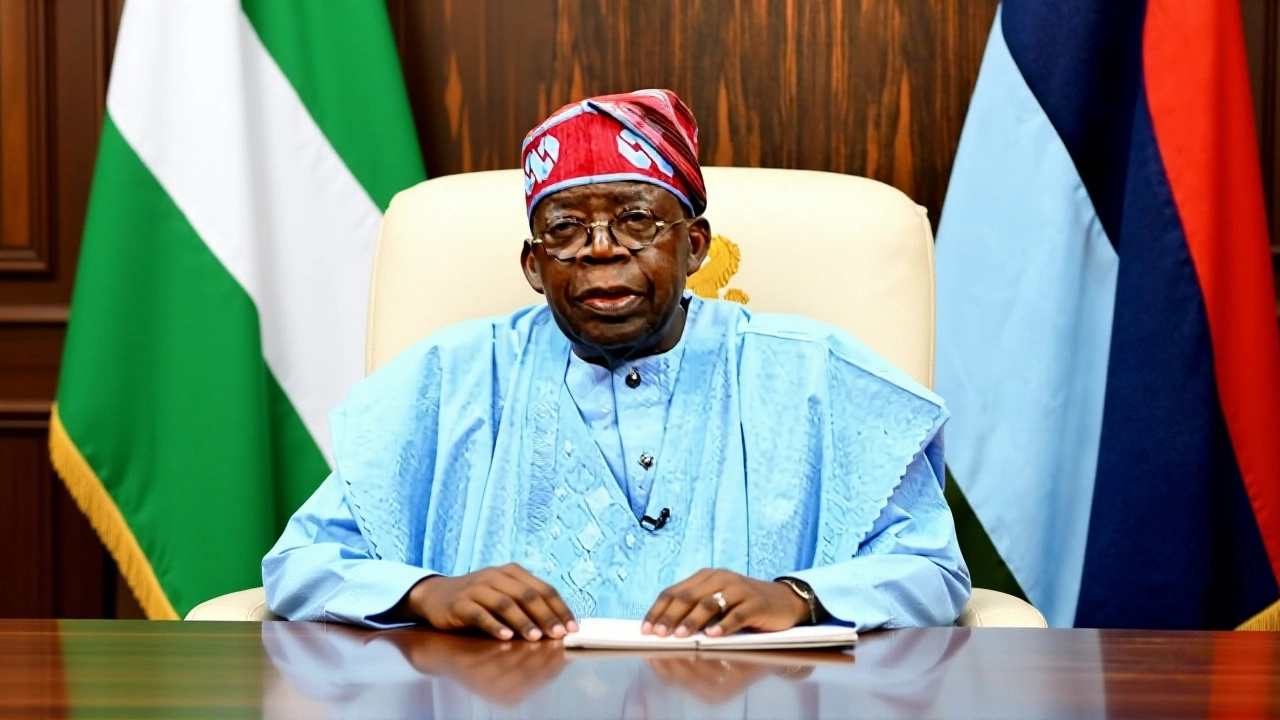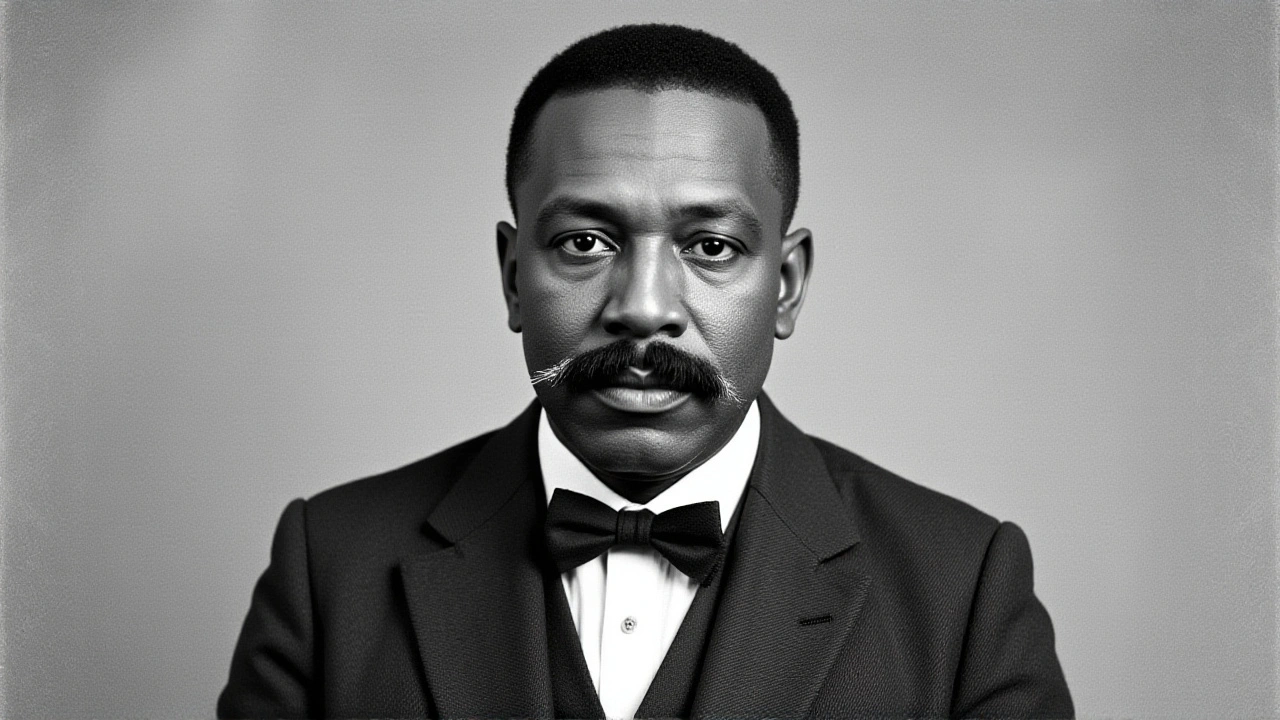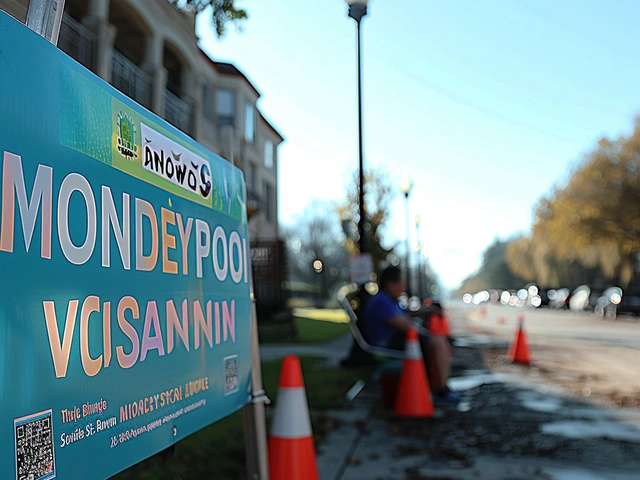When Bola Ahmed Tinubu, President of Nigeria signed the clemency order on Thursday, it marked the biggest wave of mercy the country has seen in years.
The National Council of State gathered in Abuja and voted unanimously to back the list, which totals 175 individuals ranging from historical icons to current inmates.
Among the names that grabbed headlines were Sir Herbert Macaulay, the early 20th‑century nationalist, and Major General Mamman Jiya Vatsa, the poet‑soldier executed in 1986. Both received posthumous pardons, a move the presidency framed as righting "historic injustices".
Background: Nigeria’s Prerogative of Mercy
Article 34 of the 1999 Constitution endows the president with the power to grant clemency, commute sentences, or issue full pardons. Historically, the prerogative has been sparingly used, reserved for cases with strong humanitarian or political arguments.
In October 2025, the Presidential Advisory Committee on the Prerogative of Mercy presented a detailed dossier to the Council. Chaired by Prince Lateef Olasunkanmi Fagbemi, Attorney‑General and Minister of Justice, the committee sifted through petitions, conduct reports, and family testimonies before recommending the final slate.
Scope of the October 2025 Pardon
- Full pardon for 2 living inmates.
- Pardon for 15 former convicts, 11 of whom are posthumous.
- Clemency granted to 82 prisoners.
- Sentence commutation for 65 inmates.
- Death‑row sentences reduced to life imprisonment for 7 inmates.
The list spans drug offenders, illegal miners, white‑collar fraudsters, foreigners, and capital‑offense cases. It also includes those who have shown “exemplary conduct,” earned vocational skills, or enrolled in the National Open University of Nigeria while incarcerated.
Key Figures Granted Clemency
Besides Macaulay and Vatsa, the roster features Farouk Lawan, a former House of Representatives member convicted of fraud, and activist Ken Saro‑Wiwa along with the other members of the Ogoni Eight, all posthumously cleared.
Capital‑offender Maryam Sanda received a commutation, while drug‑related cases such as Chukwudi Destiny—originally sentenced to six years at Ikoyi Custodial Centre—saw their terms cut by two years.
Other notable names: Dr. Nwogu Peters, who served 12 of a 17‑year fraud sentence, and Anastasia Daniel Nwaobia, identified as a repentant convict.
Criteria and Process
According to Bayo Onanuga, Special Adviser to the President on Information and Strategy, the committee weighed several factors:
- Demonstrated remorse and good conduct.
- Advanced age or health concerns.
- Acquisition of vocational skills or higher education (many inmates completed courses at NOUN).
- Family circumstances, especially dependents.
- Time already served versus remaining sentence.
Each application was cross‑checked with prison records, parole board recommendations, and, where relevant, statements from victims’ families.

Reactions and Implications
Human rights groups applauded the mercy aspect but urged the government to pair clemency with systemic reforms—better prison conditions, reintegration programs, and faster courts. "A pardon is not a cure for a broken justice system," said Chinyere Okafor, director of the Nigerian Legal Aid Foundation.
Opposition politicians, meanwhile, warned that the move could be politicized. In the Senate, Senator Ahmed Idris cautioned, "We must ensure clemency is not a tool for rewarding allies."
For families of the deceased, the posthumous pardons offered a measure of closure. The descendants of Macaulay gathered in Lagos, holding a modest ceremony where they displayed a portrait of the nationalist and said the gesture "reaffirms his place in our nation’s story."
What Comes Next?
The president’s office confirmed that the list will be published in the Gazette within the week, and that affected inmates will receive official letters. Prison administrators have been instructed to adjust records and, where applicable, release individuals within 48 hours.
Analysts predict that the next wave of clemency could focus on younger offenders who completed vocational training, aiming to reduce recidivism rates that have hovered above 40 % for the past decade.
Meanwhile, the Council of State is set to convene later this month to review the impact of the October clemency exercise and consider amendments to the Prerogative of Mercy framework.
Frequently Asked Questions
How does this clemency affect families of current inmates?
Families of the 82 inmates granted clemency will see reduced prison time for their loved ones, easing financial strain and emotional stress. In several cases, parents of elderly prisoners reported relief, as the reduced sentences mean they can anticipate reunions sooner rather than later.
What criteria determined which historical figures received posthumous pardons?
The advisory committee examined archival records and consulted historians. For Macaulay, they highlighted the colonial conviction for sedition, while Vatsa’s 1986 treason case was deemed a product of a turbulent military era. Both were deemed victims of political repression, meriting symbolic redemption.
Will this pardon list lead to broader criminal justice reforms?
Legal analysts say the exercise could spark legislative proposals to streamline the clemency process and reinforce rehabilitation programs. However, lasting reform will require budget allocations for prison education, which remains a contentious point in the national assembly.
What was the reaction from the victims of the crimes committed by pardoned individuals?
Responses have been mixed. Some victims’ families expressed disappointment, feeling justice was diluted. Others, particularly those whose loved ones were incarcerated for non‑violent offenses, welcomed the humanitarian angle, noting that the offenders had shown genuine remorse.
How will the reduced sentences be implemented in practice?
Prison officials will update each inmate’s case file, recalculate release dates, and issue new parole notices. The Ministry of Interior has set a 48‑hour window for processing, after which the inmates will either be released or transferred to lower‑security facilities.






Rohit Garg
October 12, 2025 AT 03:06Well, if you ask me, this massive clemency binge looks like the Tinubu administration finally discovered the magic word 'pardon' after years of political posturing.
The fact that they threw in legendary figures like Sir Herbert Macaulay alongside a couple of living inmates feels like a history lesson mixed with a reality TV twist.
On one hand, correcting the colonial-era sedition charge for Macaulay is a noble gesture that could rewrite textbooks.
On the other hand, it smacks of a calculated move to win goodwill from the intelligentsia before the next election.
The list’s blend of drug dealers, fraudsters, and ex‑politicians shows that the criteria are as broad as a farmer’s market.
Sure, reducing sentences for 82 prisoners is a humane step, but without systematic prison reforms it’s just a Band‑Aid on a bleeding wound.
The Ministry’s promise to adjust records within 48 hours sounds efficient, yet the real test will be monitoring reintegration outcomes.
Many families will finally get a breath of relief, especially the elderly dependants who have been waiting decades for a reunion.
Meanwhile, victims of high‑profile scams may feel that justice is being watered down for political convenience.
The post‑humous pardons for Vatsa and the Ogoni Eight send a symbolic message that the state is willing to revisit past wrongs.
But symbols alone won’t fix the chronic overcrowding that still plagues Nigerian prisons.
If the government pairs this mercy with investments in vocational training and mental‑health services, we might see a genuine drop in recidivism.
Otherwise, we are back to the same cycle of incarceration, release, and re‑offending.
I’d love to see parliament push for a transparent clemency framework rather than a once‑in‑a‑while spectacle.
In short, kudos for the mercy, but let’s not mistake a single wave for a tidal change.
adarsh pandey
October 15, 2025 AT 03:19I appreciate the thorough explanation of the clemency process and the inclusion of clear criteria such as remorse and vocational training. The emphasis on family circumstances shows a humane side often missing in punitive systems. It will be encouraging to see whether these pardons translate into lasting reforms for the incarcerated.
swapnil chamoli
October 18, 2025 AT 03:32The timing of this massive pardon raises eyebrows, especially when the advisory committee is chaired by a figure with deep ties to the inner circle. One could argue that the list is curated to protect certain elites while offering a token of mercy to the public. Nevertheless, the inclusion of historical figures hints at an attempt to rewrite the nation’s narrative. It remains to be seen whether this is genuine redress or a sophisticated political maneuver.
manish prajapati
October 21, 2025 AT 03:46What a refreshing move! It shows that there’s still room for compassion in our justice system. Hopefully this inspires more rehabilitative initiatives across the country.
Rohit Kumar
October 24, 2025 AT 03:59From a policy perspective, the October clemency exercise represents a multifaceted approach to criminal justice reform. By targeting inmates who have demonstrated exemplary conduct and acquired vocational skills, the administration aligns with best practices observed in progressive jurisdictions. Moreover, the posthumous pardons serve a symbolic function, acknowledging past political persecutions that have long tarnished the nation’s historical record. The procedural rigor-evidenced by cross‑checking with prison records and victim testimonies-underscores an intention to uphold fairness. Nonetheless, the true measure of success will hinge on the implementation of supportive reintegration programs, which are currently underfunded. In sum, the initiative is commendable, but it must be accompanied by sustained institutional investment to achieve lasting impact.
Ashish Verma
October 27, 2025 AT 03:12Love seeing such a big gesture of mercy 😁. It’s a hopeful sign for the future of our prisons.
Akshay Gore
October 30, 2025 AT 03:26lol just another political stunt.
Sanjay Kumar
November 2, 2025 AT 03:39It's good that the families finally get some closure 😊. Still, the systemic issues remain.
Hitesh Kardam
November 5, 2025 AT 03:52This looks like a classic distraction tactic, folks. They push the pardons to cover up deeper corruption. Keep your eyes open.
Nandita Mazumdar
November 8, 2025 AT 04:06Finally, the government shows it can be bold! This is the kind of decisive action we need.
Aditya M Lahri
November 11, 2025 AT 04:19Great move toward justice! It will lighten the burden on families waiting for reunions. Let’s keep the momentum going 🙂
sona saoirse
November 14, 2025 AT 04:32i think this is a big step but its not eazy to fix all th issues. the rebourn can be more improveable.
VALLI M N
November 17, 2025 AT 04:46Patriots love seeing our leaders act! This shows strength and unity 😎. Keep defending our nation.
Aparajita Mishra
November 20, 2025 AT 04:59Oh wow, a pardon parade – how original. Guess we’re all just applauding the same old show.
Shiva Sharifi
November 23, 2025 AT 05:12These pardons could really help reduce the strain on families. Let’s hope they follow through with real support.
Ayush Dhingra
November 26, 2025 AT 05:26Honestly, this wave of pardons feels like a PR stunt rather than genuine reform. If they really care, they'd allocate more budget to prison education. Until then, it’s just window‑dressing.
Vineet Sharma
November 29, 2025 AT 05:39Interesting how they manage to fit 175 names into one list. Guess anyone can be a hero now.
Aswathy Nambiar
December 2, 2025 AT 05:52the whole thing is kinda like a movie script, lol. cant beleive they do such thing in real life.